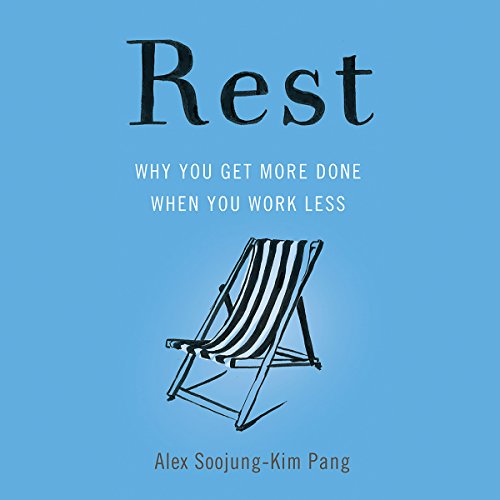This is a book review on Rest by Alex Soojung-Kim Pang.
So, reading this was a search for validation to not work as much and rest more. Or as my wife interpreted the book on my nightstand, proof that we need schedule more vacation time. That is the simple takeaway and, yes, that did get validated but it gave more insight than that on how time away allows perspective, allows clarity, allows your brain to codify new things and allows the opportunity to solve something that you have been working on. Throughout the book they site examples of incredible output that happened due to rest and not trying to beat the problem into submission through brute force or out working it. Hard work is required for success but work smarter, not harder.
Bryan’s Takeaways from the Book:
When we rest and let our minds wonder, our brains are almost as active as when we’re concentrating hard on a problem. While we’re not conscious of it, the resting brain turns out to be consolidating memories, making sense of the past, and searching for solutions to problems that are occupying our waking hours.
One striking characteristic of the brain in its resting state is that it’s barely less energetic than the engaged brain.
How do students mark for greatness make the most of the limited practice time? The rhythm of their practice follows a distinctive pattern. They put in more hours per week in the practice room or playing field, but they don’t do it by making each practice longer. Instead, they have the more frequent shorter sessions, each lasting about 80 to 90 minutes, with half hour breaks in between. Add this several practices up, and what do you get? About 4 hours a day.
The top performers actually slept about an hour a day more than the average performers. Of course there was lots of variability, but the best students generally followed a pattern of practicing hardest and longest in the morning, taking a nap in the afternoon, and having a second practice in the late afternoon or evening.
The top students were applying some of the habits of deliberate practice – mindfulness, an ability to observe their own performance, a sense that their time was valuable and needed to be spent wisely space – to their downtime.
We’ve come to believe that world-class performance comes after 10,000 hours of practice. But that’s wrong. It comes after 10,000 hours of deliberate practice, 12,500 hours of deliberate rest, and 30,000 hours of sleep.
Burn out contributes to declines and productivity, a more stress and unhappy workplace, and greater turnover. And it’s often an organization, most talented and valuable workers who are most likely to burn out.
A break from work – the kind that allows what sociologist called detachment, the ability to put the work we’ve got out of your mind and attend to other things – turns out to be tremendously important as a source of mental and physical recovery from work.
There are four major factors that contribute to recovery for relaxation, control, mastery experiences, and mental detachment from work.
People who seek out flow experiences in difficult but rewarding activities are happier and have more satisfying lives than the people who pursue sybaritic pleasures
Vacations are like sleep: you need to take them regularly to benefit.
Exercise doesn’t just make your brain healthier by reducing cholesterol or improving cardiovascular capacity; exercise actually induces profound structural brain plasticity.
Comparative studies of adults who do and don’t exercise find that couch potatoes have lower scores on tests of executive function and processing speed and in middle age faster rate of brain aging and memory decline.
You shouldn’t be surprised that people manage to be physically active and do world-class work. We should recognize that they do world-class work BECAUSE they are physically active.
Deliberate rest helps you live a good life. It also serves as a hedge against narrowness and intellectual atrophy.


